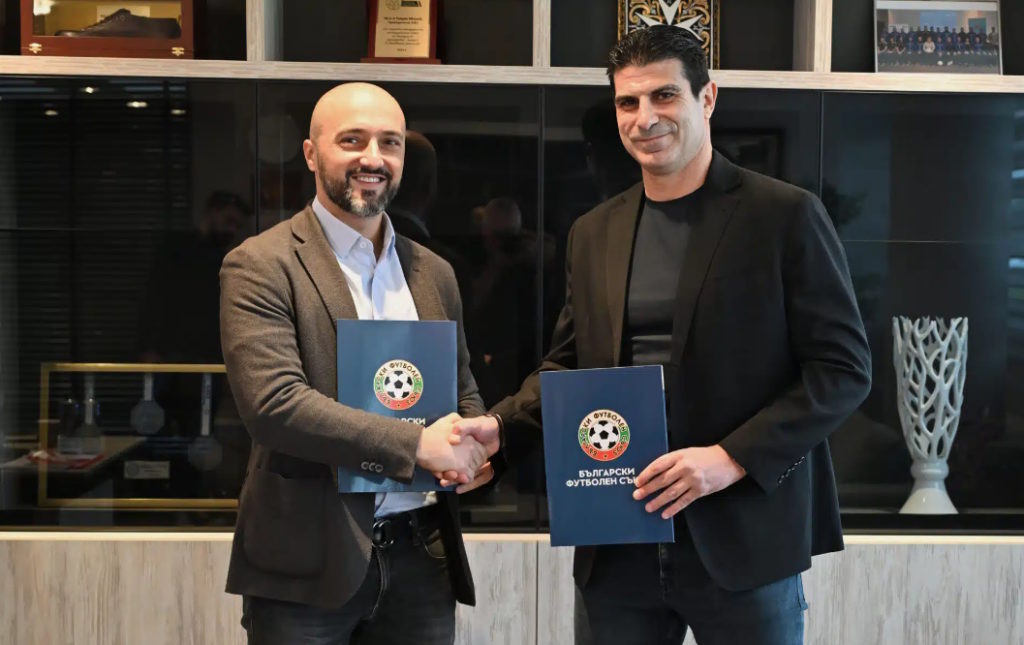November 15 – The Bulgarian Football Union has signed a partnership agreement with the Association for Production, Storage and Trading of Electricity (APSTE), which aims to make Bulgarian football more sustainable and environmentally responsible.
The initiative is linked to UEFA’s sustainable development strategy, which promotes the reduction of carbon emissions and the conservation of resources. By 2030, the European football powerhouse aims to halve emissions from sporting events, and by 2040 they must reach net zero levels.
The APSTE was founded by Bulgarian and international companies in 2019. It advocates for the introduction and development of adequate policies and regulatory framework in Bulgaria to support the transition to a sustainable, low-carbon and secure energy system.
“It is important for us to develop football in all directions and to meet the standards imposed by UEFA and the leading national federations. We believe in teamwork and in this regard we are constantly looking for like-minded people and partners to bring new energy to the activities of the BFU. The partnership with APSTE is an example of exactly this, as our goal is to jointly develop ideas for modernizing the sports infrastructure and implement environmental protection activities,” said the president of the BFU, Georgi Ivanov, after signing the partnership agreement.
“Football is the most popular sport in Bulgaria. We are happy to work with the BFU on important topics for its development. Football infrastructure has been neglected for decades. To change this, joint efforts are needed from the state, municipalities and businesses. The companies from the energy sector will help with experience and technical resources for the preparation of investment proposals,” said Nikola Gazdov, chairman of APSTE.
Within the framework of the partnership, projects will be developed to install solar panels, energy storage batteries, charging stations for electric cars and other technologies related to the modernization of stadiums and sports facilities in the country. The expectation is that this will reduce electricity costs and reduce the carbon footprint of Bulgarian football.
“Our members have shown interest in working with the BFS and for holding a national school football championship. I hope more companies support children and mass sports, especially in small towns,” added Gazdov.
The two organisations will also explore the possibility of developing educational programs to introduce football fans to the benefits of renewable energy and environmental protection activities.
Contact the writer of this story, Aleksander Krassimirov, at moc.l1745235799labto1745235799ofdlr1745235799owedi1745235799sni@o1745235799fni1745235799


